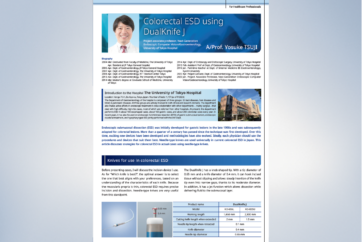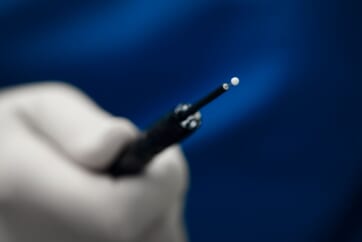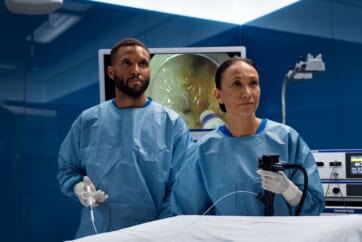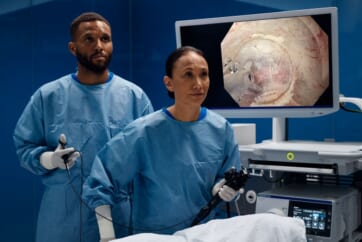DualKnife™ device Technique
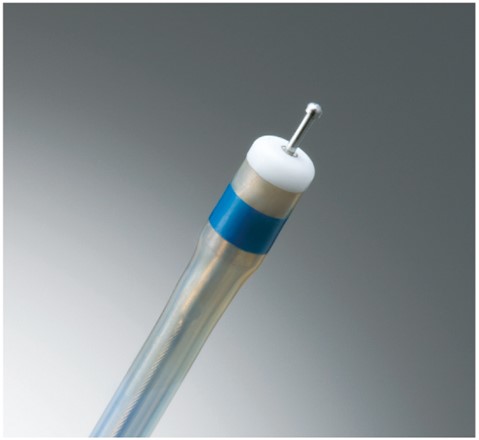
Model KD-650L
Dr. Naohisa Yahagi
Keio Universitiy
Disclaimer:
The positions and statements made herein by Dr. Naohisa Yahagi are based on Dr. Naohisa Yahagi’s experiences, thoughts and opinions. As with any product, results may vary, and the techniques, instruments, and settings can vary from facility to facility. The content hereof should not be considered as a substitute for carefully reading all applicable labeling, including the Instructions for Use. Please thoroughly review the relevant user manual(s) for instructions, risks, warnings, and cautions. Techniques, instruments, and setting can vary from facility to facility. It is the clinician’s decision and responsibility in each clinical situation to decide which products, modes, medications, applications, and settings to use.
Interview With The Expert
The DualKnife™ device can be set to either of two lengths. When the knife is extended to maximum length, it can be used for incision and dissection. When the knife is retracted, the knife tip still protrudes by 0.3 mm so it can be used for marking as well as simple hemostasis. The knife length can be set to either 2 mm or 1.5 mm.
The 2 mm length is for gastric ESD, while the 1.5 mm length is for esophageal ESD. The knife tip has a projecting section, which catches the tissue during incision and dissection, improving knife maneuverability.
Moreover, the dome-shaped knife tip improves the knife contact during incision and dissection. In addition, the outer diameter of the sheath is just 2 mm, so smooth water and smoke suction is possible even when the knife is retracted in the instrument channel.
but the thin, needle-shaped design of the DualKnife™ device provides improved incision performance. Consequently, physicians typically set the DualKnife™ device’s high-frequency power about 10 W lower than the FlexKnife™ device. Even when residue is adhered to the tip, it can be removed by moving the knife back and forth a few times and allows continuous use.
While the FlexKnife™ device needs fine adjustment for knife length, the DualKnife™ device can accurately set the knife length into two lengths. This also makes it easier for the operation assistant to handle.
The thinness of the sheath could make it more difficult to transmit force to the tip when the sheath is extended. It is more effective to use the multi-bending endoscope when treating a lesion in a hard-to-approach region.
I sometimes switch to the HookKnife™ device when I encounter advanced fibrosis during dissection, limited space for endoscope maneuver, or unstable knife contact due to severe respiratory movements. Hemostasis for small amount of bleeding can generally be achieved by bringing the retracted knife in contact for coagulation. For pulsatile bleeding, I use the Coagrasper™ device.
Applicability of the DualKnife™ device
Difficulty per region
◯ : Easy. No mark: Ordinary. △ : Difficult.
| Cardiac region | △ | |
|---|---|---|
| Fornix | △ | |
| Lesser curvature of upper body | ||
| Greater curvature of upper body | △ | Bleeding makes a pool of blood. |
| Anterior wall of upper body | △ | |
| Posterior wall of upper body | △ | Tends to bleed heavily. |
| Lesser curvature of middle body | ◯ | |
| Greater curvature of middle body | △ | Bleeding makes a pool of blood. |
| Anterior wall of middle body | △ | |
| Posterior wall of middle body | ||
| Lesser curvature of lower body | When gastric angulus widens, distance is made between the device and mucosa and it is difficult to transmit proper force. Multi-bending endoscope enables easy operation. |
|
| Greater curvature of lower body | ||
| Anterior wall of lower body | ||
| Posterior wall of lower body | ||
| Lesser curvature of anterior wall | ◯ | |
| Greater curvature of antrum | ◯ | |
| Anterior wall of antrum | ◯ | |
| Posterior wall of antrum | ◯ | |
| Pyloric ring | △ |
- Content Type

